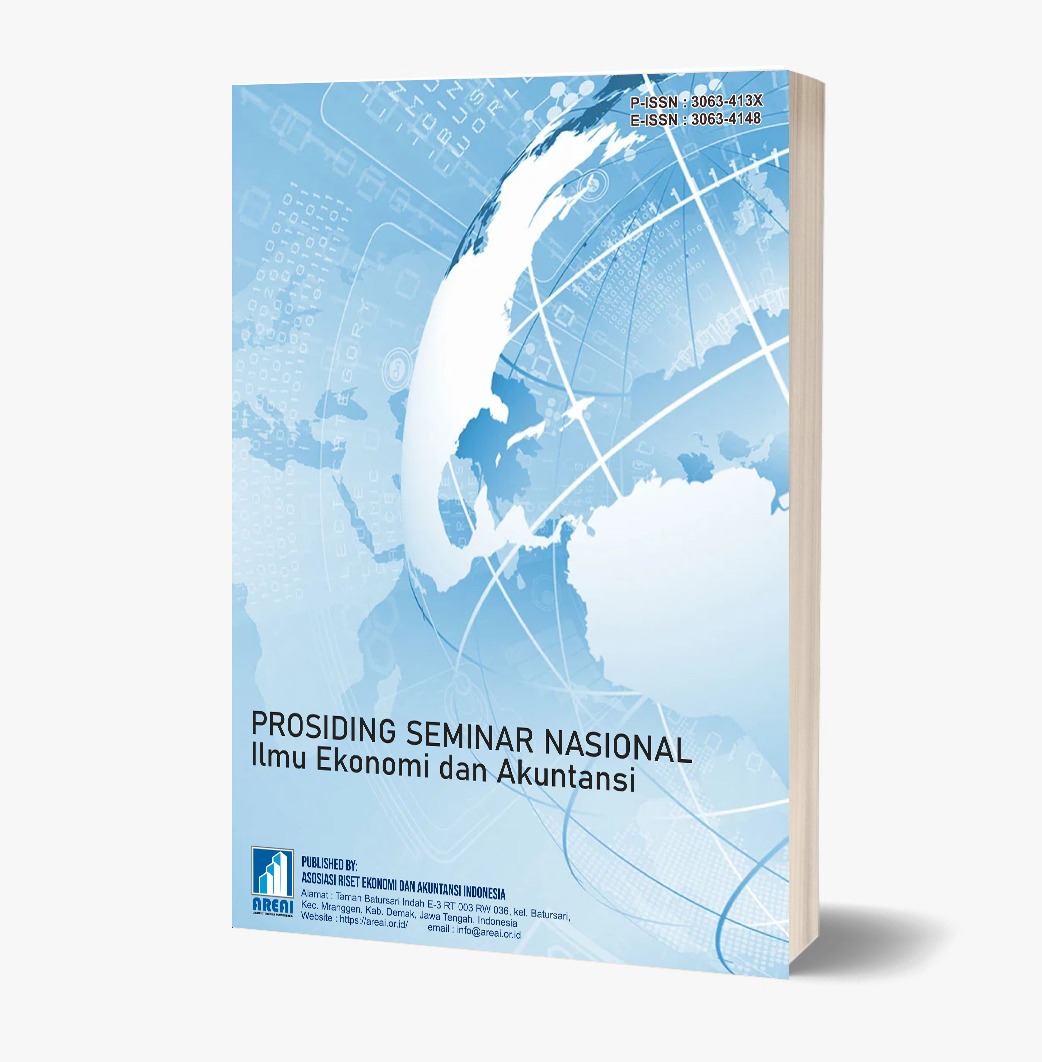The Influence of Credit Relationship Managers’ Lifestyle and Fraud Potential on Non-Performing Loans in the Banking Sector
DOI:
https://doi.org/10.62951/prosemnasieda.v2i2.122Keywords:
Banking Sector, Fraud Potential, Lifestyle, Non-Performing Loans, Relationship ManagerAbstract
This study aims to analyze the influence of the lifestyle of credit relationship managers (RMs) and the potential for fraud on the occurrence of non-performing loans in the banking sector. Relationship managers are the spearheads of credit distribution, interacting directly with customers, so their behavior, lifestyle, and integrity have a significant impact on the quality of a bank's credit portfolio. This study uses a qualitative descriptive method with a systematic literature review approach, reviewing various recent studies related to bank employee lifestyles, factors driving fraud, and their correlation with non-performing loans. The results indicate that a consumptive lifestyle disproportionate to income can increase the risk of fraudulent behavior, such as manipulation of credit analysis or collusion with customers, which ultimately results in an increase in non-performing loans. Furthermore, weak internal control systems, pressure to achieve credit targets, and moral hazard exacerbate this risk. A lifestyle that prioritizes social symbols and self-image can also encourage employees to engage in deviant behavior to maintain this lifestyle. Several studies have shown that RMs trapped in a hedonistic lifestyle are more vulnerable to conflicts of interest and violations of professional ethics. Meanwhile, the potential for fraud in banking practices is also influenced by employees' weak personal financial literacy, as well as limited training in risk management and ongoing work ethics. In an organizational context, a work culture oriented toward achieving targets without regard for the quality of credit analysis has the potential to create a work climate that is permissive of irregularities. This study recommends strengthening a culture of integrity through the establishment of a firm code of ethics, technology-based supervision (such as an AI-based fraud detection system), and regular training on a healthy financial lifestyle and risk management for RMs.
Downloads
References
ACFE (2023). Report to the Nations: 2023 Global Study on Occupational Fraud and Abuse. Association of Certified Fraud Examiners.
Cressey, D. R. (1953). Other People’s Money: A Study in the Social Psychology of Embezzlement. Free Press.
Farhan, Z., & Saleh, M. (2022). Whistleblowing Systems and Early Detection of Credit Fraud. Journal of Risk Management Studies, 18(2), 190–205.
Golubeva, O. (2023). Systematic Literature Review in Financial Risk Studies. Journal of International Accounting, Auditing and Taxation, 51, 100548.
Gunawan, E., Hartono, A., & Sihombing, D. (2022). Internal Control Systems and Fraud Risk Management in Commercial Banks. Journal of Accounting and Finance Research, 9(3), 200–215.
Hakim, A., & Rahma, L. (2023). Organizational Integrity Culture and Fraud Risk Mitigation in Banking Sector. Journal of Business Ethics and Governance, 15(4), 300–315.
Halim, N., & Pertiwi, R. (2022). Technology-Based Fraud Detection in Banking: Impact on NPL Reduction. Journal of Financial Technology and Compliance, 7(4), 270–285.
Jensen, M. C., & Meckling, W. H. (1976). Theory of the Firm: Managerial Behavior, Agency Costs, and Ownership Structure. Journal of Financial Economics, 3(4), 305–360.
Kotler, P., & Keller, K. L. (2023). Marketing Management (16th ed.). Pearson Education.
Lestari, S., & Widodo, R. (2024). Moral Hazard and Fraud in Banking Credit: The Role of Internal Control. International Journal of Financial Crime Studies, 19(3), 210–225.
Nugroho, A. (2021). Applying Fraud Triangle Theory to Understand Credit Risk in Banking. International Journal of Financial Behavior Studies, 6(2), 120–135.
OJK (2024). Laporan Profil Industri Perbankan Indonesia 2024. Otoritas Jasa Keuangan, Jakarta.
Putra, D., & Kurniawan, A. (2025). Impact of Lifestyle Pressure and Fraud Behavior of Relationship Managers on Non-Performing Loans. Journal of Banking Risk Management, 17(2), 55–70.
Rachman, T. (2024). Lifestyle Pressure and Fraud Risk among Banking Employees: Evidence from Indonesian Commercial Banks. Asian Journal of Banking and Finance, 12(2), 155–170.
Santoso, R., & Pratama, A. (2023). Lifestyle, Financial Stress, and Ethical Behavior of Relationship Managers in Indonesian Banks. Journal of Financial Behavior Research, 8(1), 87–103.
Sari, P., Nugraha, T., & Dewi, M. (2025). Credit Target Pressure and Fraudulent Behavior: A Qualitative Study of Indonesian Banks. Asian Journal of Financial Ethics, 14(1), 88–102.
Setiawan, D., Rahardjo, P., & Kusuma, A. (2021). Agency Problem, Fraud, and Non-Performing Loans: Evidence from Indonesian Banks. Journal of Banking Governance, 13(1), 75–90.
Wijaya, F., & Mulyani, E. (2023). Internal Fraud and Non-Performing Loans: The Role of Relationship Managers in Indonesian Banks. International Journal of Banking Studies, 11(3), 201–219.
Wijaya, F., et al. (2023). Fraud in Credit Approval Processes: An Empirical Study in Southeast Asian Banks. Journal of Financial Crime, 30(5), 682–700.
Yulianto, B. (2023). Social Pressure and Fraudulent Practices among Relationship Managers. Banking and Society Review, 10(2), 140–155.







